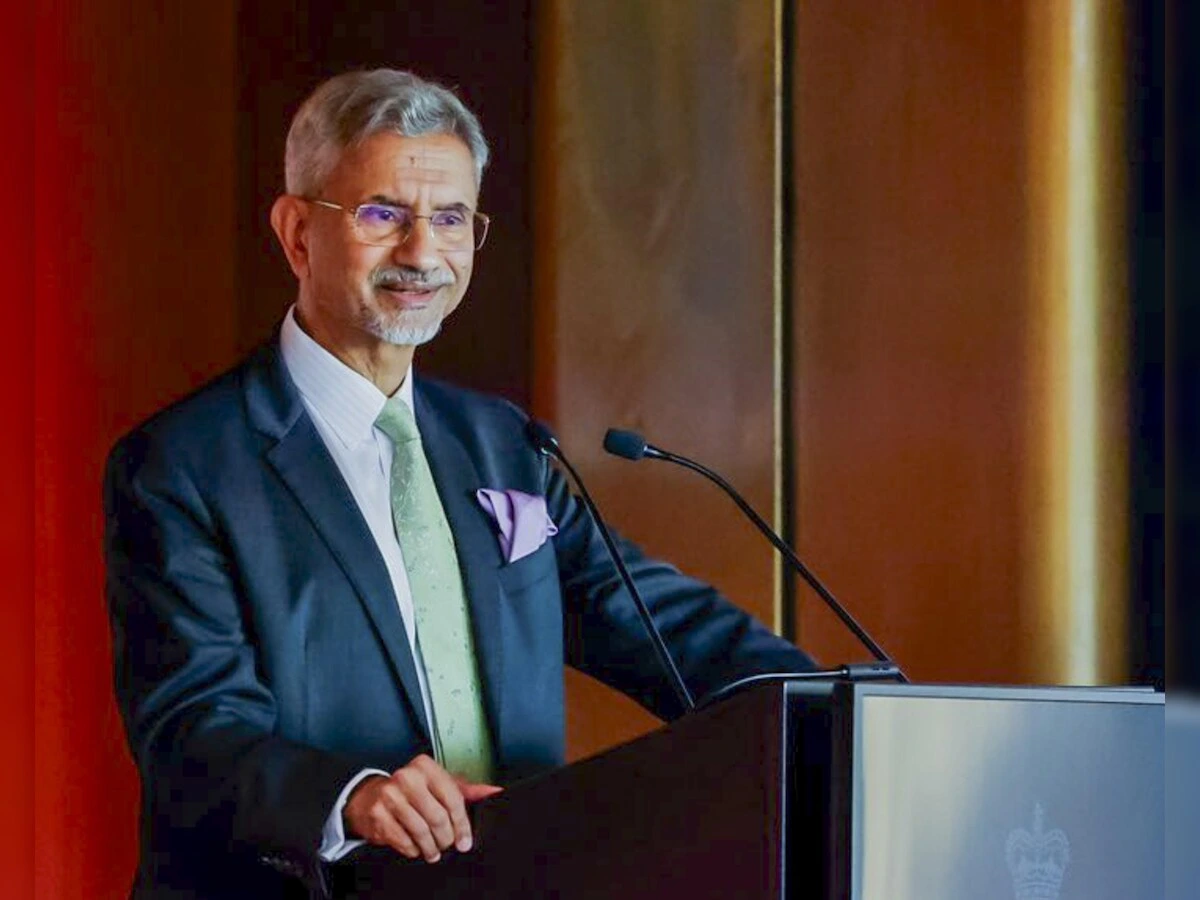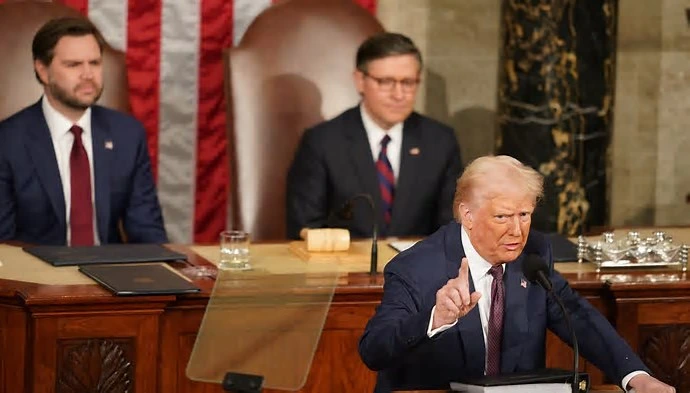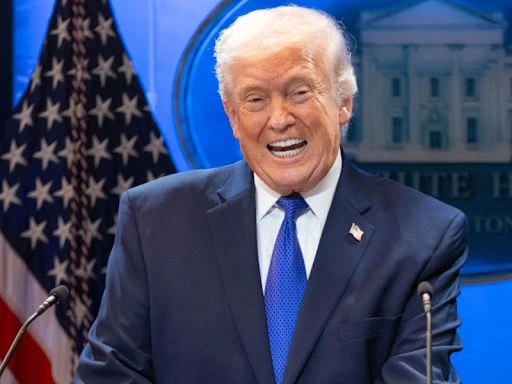14-JULY-2025,04:54 PM
In a significant gesture of diplomacy and cultural symbolism, EAM Jaishankar planted a pomegranate sapling during his official visit to China this week. The External Affairs Minister’s act, steeped in symbolic meaning, was part of his engagement with Indian Embassy officials in Beijing. The move comes at a time when India-China relations remain under global scrutiny, highlighting India’s commitment to dialogue, cultural exchange, and people-to-people connections.
During his visit, EAM Jaishankar also held candid interactions with Indian diplomats and staff at the embassy, addressing critical geopolitical challenges while encouraging team spirit and national pride among those representing India abroad.
EAM Jaishankar : Symbolic Gesture: A Pomegranate for Peace
EAM Jaishankar : Why a Pomegranate Sapling?
The planting of a pomegranate sapling was more than a ceremonial act. In several cultures, the pomegranate symbolizes prosperity, unity, and renewal—a fitting representation amid evolving bilateral dynamics. For EAM Jaishankar, it was a message of hope and stability, especially as India continues to navigate its complex relationship with China.
The External Affairs Minister has previously emphasised the importance of cultural diplomacy, and this small yet meaningful act stood as a subtle but powerful symbol of constructive engagement.
EAM Jaishankar : India-China Relations in Focus
The choice of China as the site for this symbolic gesture is significant. Relations between New Delhi and Beijing have faced turbulence in recent years, particularly following the Galwan Valley clash in 2020. While formal diplomatic ties remain intact, border disputes and strategic disagreements persist.
By planting a tree in Beijing, EAM Jaishankar reinforced India’s message: despite the challenges, dialogue remains open, and peace remains a shared goal. Such symbolic diplomacy reflects the broader strategy of combining firmness with friendship.
EAM Jaishankar Engages With Embassy Staff in Beijing
EAM Jaishankar : A Candid Conversation With Indian Diplomats
Beyond the symbolism, EAM Jaishankar’s visit had a personal and practical component. During his interaction with embassy personnel, he acknowledged the crucial role diplomats play in shaping India’s image and interests abroad. He praised their dedication in one of India’s most strategically sensitive missions and urged continued focus on professionalism and strategic clarity.
“Your work here directly contributes to the larger national interest,” EAM Jaishankar told staff members, while addressing current global realignments and India’s expanding role on the world stage.
Boosting Morale in Foreign Service
It’s rare for high-ranking ministers to take such a personal approach during international visits. EAM Jaishankar’s experience as a former diplomat himself makes him uniquely positioned to understand the daily challenges Indian foreign service officers face. His engagement wasn’t merely political—it was personally reassuring and morale-boosting for the Indian diplomatic community stationed in China.
He also took time to inquire about their families, well-being, and professional development, reflecting his continued focus on human-centric governance even in external affairs.
The Broader Strategic Context of the Visit
India-China Bilateral Relations at a Crossroads
While the sapling planting and embassy visit captured attention, the broader implications of EAM Jaishankar’s presence in China are deeply strategic. It is part of a renewed effort to maintain high-level communication between the two nations despite ongoing border tensions.
Though no formal bilateral meetings with Chinese counterparts were reported during this leg of the visit, analysts see this as India keeping diplomatic doors open, even while standing firm on territorial integrity and sovereignty issues.
Diplomatic Presence as a Soft Power Tool
India’s foreign policy has increasingly leveraged soft power—from yoga diplomacy to food festivals and cultural exchanges. The act of planting a pomegranate sapling complements this strategy, allowing India to communicate openness and goodwill without compromising on core national interests.
EAM Jaishankar has often spoken about the importance of balancing hard and soft diplomacy—this visit embodies that duality perfectly.
Reactions to EAM Jaishankar’s China Visit
Mixed Reactions From Political Circles
Reactions in India to EAM Jaishankar’s symbolic gestures and embassy interaction have been mixed. While several foreign policy experts lauded the visit as a nuanced diplomatic manoeuvre, some critics questioned whether such engagements yield tangible outcomes.
Supporters argue that sustained presence and communication, especially in adversarial regions, is essential for long-term diplomatic success. Critics, however, remain skeptical of the effectiveness of symbolic gestures in resolving hard-core geopolitical disputes.
Social Media Applauds Simplicity and Purpose
On social media, images and videos of EAM Jaishankar planting the pomegranate sapling quickly went viral. Many users praised the simplicity and thoughtfulness of the act, with hashtags like #EAMJaishankar, #DiplomaticWisdom, and #IndiaChinaRelations trending on platforms like X and Instagram.
One comment read:
“This is diplomacy with depth. Not just words, but gestures that speak louder. Hats off to EAM Jaishankar!”
The Human Side of Foreign Policy
Diplomacy Beyond Boardrooms
Foreign policy is often seen as a matter of formal agreements, treaties, and negotiations. However, visits like this one by EAM Jaishankar highlight the human side of diplomacy—where gestures, relationships, and shared experiences shape long-term international dynamics just as much as formal statements do.
His connection with the Indian Embassy staff in Beijing underscores that diplomacy is not just about governments—it’s also about people serving abroad, representing India’s values on foreign soil.
Setting a Tone for Future Engagements
With this visit, EAM Jaishankar has set a diplomatic tone that other ministries and departments can follow—one of engagement, empathy, and strategic symbolism. It sends a strong message that India is a confident, culturally grounded, and globally aware nation ready to engage even in challenging environments.
Conclusion: EAM Jaishankar Blends Strategy With Symbolism in China Visit
EAM Jaishankar’s recent visit to China—marked by the planting of a pomegranate sapling and meaningful engagement with Indian embassy staff—blends subtle diplomacy with strong strategic intent. While the visual of a sapling being planted may seem simple, its message is layered: peace, continuity, dialogue, and hope.
At a time when international relations are fraught with complexity, such gestures from India’s top diplomat serve as reminders of the country’s resilient and thoughtful foreign policy approach. With leaders like EAM Jaishankar at the helm, India continues to balance assertiveness with outreach, making its presence felt not just in geopolitics but in global goodwill.
Source : ANI





